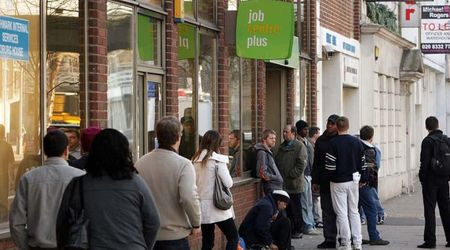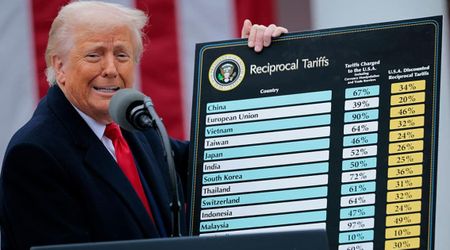Gen Z Shifts to 'Just the Basics' Amid Rising Prices, Everything Else Seems Like a Splurge

In the post-pandemic world millennials and Gen Zers are spending more on groceries instead of fancy restaurants and expensive jewelry. As per a new report from McKinsey & Company, groceries are becoming the top spending category for younger generations. It sheds light on how spending on groceries has now surpassed spending on restaurants, travel, beauty, and even personal care. As per the report, consumers indicated their plans to increase their purchases of essential items.
The average consumer said they expect to spend more on fresh produce, meat, and dairy as well as center-store categories which include shelf-stable foods or frozen foods. "Among discretionary items, consumers expressed in February a higher intention to spend on travel and home (such as on short-term rentals, home improvement, hotel resort stays, and flights) than they did in the fourth quarter of 2023," the report added.

"We’ve been shopping at the grocery store more often to buy things that are healthier for us. And in the process, we get to save money and spend time with each other cooking and eating together. So it’s a win-win for everybody," read an anonymous statement by a millennial.
Last year in October, Bank of America's 2023 Better Money Habits report, surveyed over 1,100 Gen Zers which revealed that they were curbing their lifestyles because of the tight economy. The survey found that dining out was simply losing favor for Americans of all generations. "By implementing a ‘just the basics’ strategy when it comes to weekly food shopping, Gen Z is proving themselves to be a fiscally minded generation, taking extra care to cut costs without imposing too much on their lifestyle," Holly O'Neill, president of retail banking at Bank of America, tells Fortune.
While millennials and Gen Z are prioritizing "need" over "want" for now, other surveys show that they are lagging when it comes to emergency savings and savings in general. Fidelity's 2024 State of Retirement Planning study revealed that 57% of millennials and 56% of Gen Z believe that they will have to deal with financial distress after retirement. Respondents blamed higher cost of living and consumer debt for not being able to save for their future. Moreover, millennials and Gen Zers are also way behind when it comes to owning real estate.
Mohit Singla, a 33-year-old living in New Jersey, said that their household income is around $500,000, and yet they have not been able to buy a house. They also added that they may have already bought the house and also a car "if the economy had been different." Singla is not sure of the steps to take, "If I had to leave my job and take a break or take a vacation, I used to feel comfortable we could do that,” he said. Now, "everything feels like a splurge," he added.
"People are just exhausted, and so if you’re asking them to think five to 10 years in the future, well I can barely think about tomorrow," said Kyla Scanlon, author of "In This Economy? How Money & Markets Work," via CNBC.

Now, with the younger generations moving to a simpler lifestyle, many feel that they will be able to better their financial situation in the future. According to Bankrate's fresh survey, the major reason for this optimism is the booming job market. Furthermore, it was also seen that young people know the secret to accelerate their wage growth.
“They’re at the early point in their careers. They get a job at the entry level and move up the ladder within five years. But even considering that wages have risen even faster for young people than historic normals,” says Chris Clarke, assistant professor at Washington State University’s School of Economic Sciences.






















